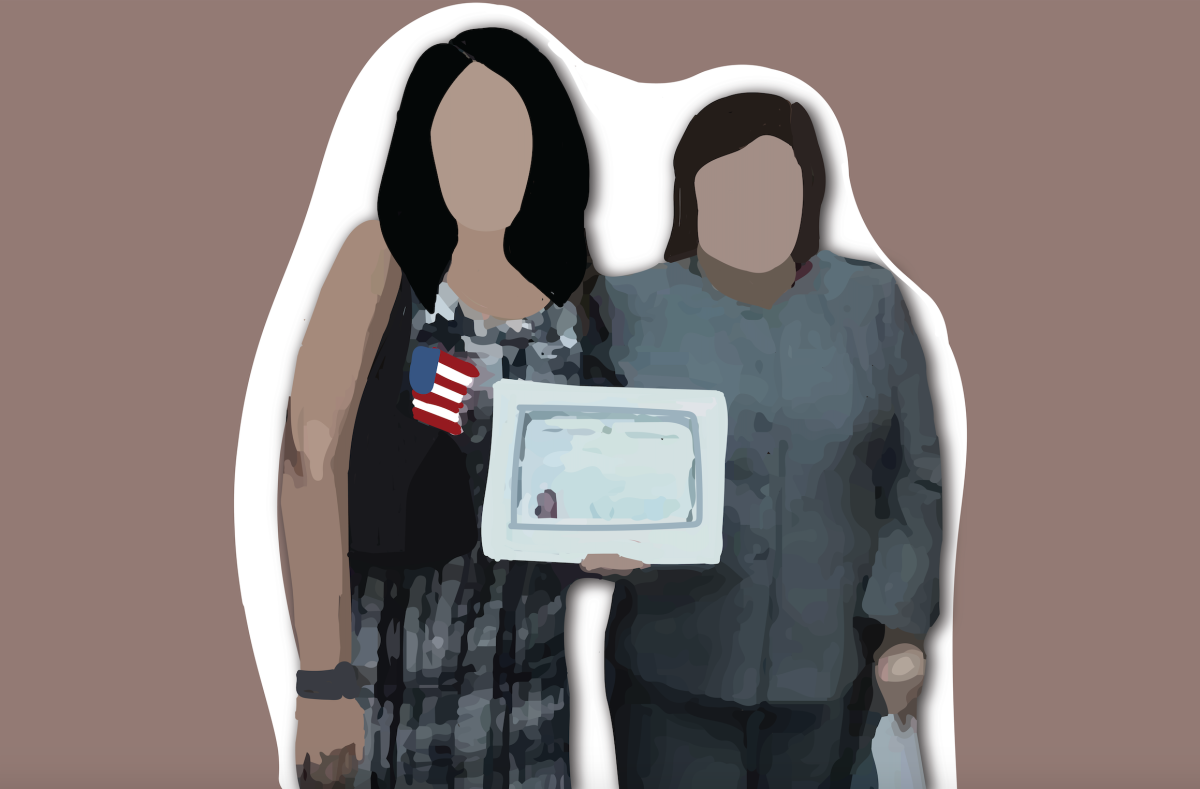My mom met my dad in an online chatroom.
Born and raised in São Paulo, Brazil, my mother was seeking to expand her worldview, and in doing so, she found love with a guy from Pennsylvania. It was an unlikely romance with an immense distance between them, yet, they made things work. Before she knew it, she was leaving Brazil for good and embarking on a journey to the U.S.—a pilgrimage story as old as time.
A golden opportunity arose when she was able to obtain a work visa. This made her immigration process much simpler. After gaining proficiency in English and excelling in her career, she achieved her citizenship around 10 years later.
But most immigrants aren’t so lucky. Whether they’re fleeing war or general turmoil within their home country, or simply seeking a better, more fruitful life for their children, many migrants will end up choosing the U.S. as their new home. But this promised land of freedom and opportunity will inevitably force them to undergo one of the most arduous journeys a human being could endure. Don and Trump’s presidency only added insult to injury.
During Trump’s presidency, we witnessed immigrant children being locked in cages like animals, while their parents were arrested and often brutalized. Tensions approached an all-time high between both sides of the political spectrum, as those who cheered on border patrol sparred with others who petitioned for the reform of immigration law.
Many supported the construction of a wall between the U.S. and Mexico, as if the intangible boundaries of racial differences, financial inequality and general exclusion of prospective citizens weren’t divisive enough.
My mother might not have under gone the same horrific journeys that most immigrants are forced to endure, but she can still understand the difficulty of the citizenship process.
However, the most heart-wrenching part is what she refers to as “immigrant syndrome.” In her words, this infliction “manifested as a sentiment of ‘being neither here nor there.’ You assimilate into the new culture but you never feel 100% American and, in my case, I no longer feel 100% Brazilian either.”
The ostracization of immigrants in the U.S. is devastating for those who sacrificed so much to be here in the first place. They gave up everything just to be treated like they will never belong.
Despite achieving her citizenship, the obstacles my mother must face are far from over. She has come to accept that she will never enjoy the full U.S. citizen experience.
Ultimately, my mother, brother and I will never truly feel like we are a genuine part of this country. We endure inherent inferiority and microaggressions on a daily basis. Whether it’s as subtle as a look of disdain in our church, or as extreme as a truck slowing down to call me slurs I didn’t know existed, my family will always experience a significantly different life from our privileged white neighbors.
Sadly, the issues we grapple with can only offer a small glimpse into what life as an immigrant looks like.
As we approach Latinx Heritage Month, it’s important to continue the conversation of immigration reform, no mat ter who is in office. There are a plethora of ways to help out both locally and globally.
On Change.org alone, there are thousands of petitions to save families from being torn apart by deportation. Even writing to your local officials or justice department is one way to advocate for Deferred Action for Childhood Arrivals (DACA) and other protections for immigrants and DREAMers.
I personally will not rest until I can prevent anyone else from feeling the way my mother has, because immigrants are people too.














































